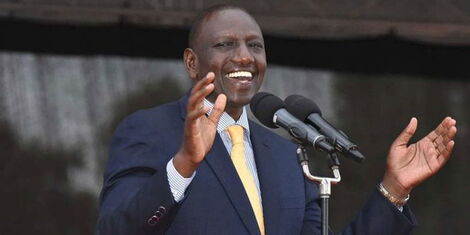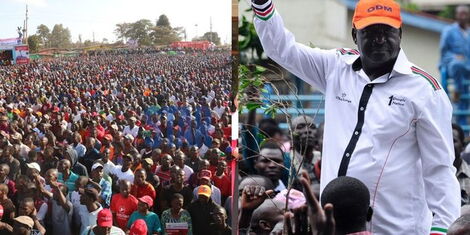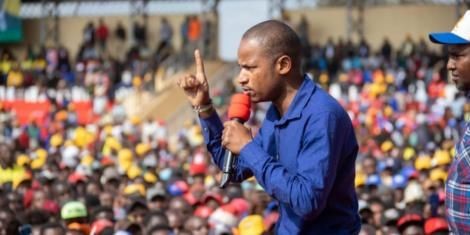-
Embakasi East MP Babu Owino during a past political rally FILE
-
Embakasi Member of Parliament Babu Owino on Wednesday, December 7, put President William Ruto on the spot over unmet promises.
While addressing a public rally at Kamukunji grounds in Nairobi, the lawmaker told a charged crowd that Ruto rose into power by outrightly lying to Kenyans.
With his first 100 days in office lapsing, Owino argued that Ruto was yet to fulfil any of many pledges he made.
 A file image of President William Ruto FILE
A file image of President William Ruto FILE“Ruto lied to Kenyans that he will lower the prize of maize flour in first 100 days yet it has gone up,” Babu Owino lamented.
Ruto on September 13, had asked Kenyans to give him one week to lower maize flour price.
“We start the journey of reforming the agriculture sector next week so as to lower the cost of living in Kenya,” Ruto spoke back then.
Babu Owino further argued that Ruto had promised Kenyans free airtime something that was not actualized.
In the run up to the polls on June 29, while on the campaign trail, Ruto promised Kenyans, “You will no longer require airtime bundles; phone calls will be free in my government.”
The parliamentarian further faulted the president for giving Kenyans Hustler Fund loan instead of grant as earlier promised.
“Ruto promised Kenyans a grant but instead offered them a loan, I urge everyone to apply the loan and not pay.”
“There is no jail that accommodate every Kenyan if they default on payments,” Babu Owino told a charged crowd.
The MP further accused William Ruto of sabotaging the economy by banning clubs and Kazi Mtaani.
Babu warned Kenyans to prepare for tough times ahead as the country was heading to autocratic rule.
“We have dictatorship now in the country because the president has already captured the Judiciary, National Assembly and the Office of Directorate of Public Prosecutions,” the MP warned Kenyans.
 A collage of ODM supporters in Kamukunji Nairobi, with Azimio Party leader Raila Odinga. By Kioko Nyamasyo, KENYANS.CO.KE
A collage of ODM supporters in Kamukunji Nairobi, with Azimio Party leader Raila Odinga. By Kioko Nyamasyo, KENYANS.CO.KE






